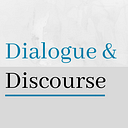Nationalism, Bi-Nationalism And The Jewish People
The mythical concept of “Jewish peoplehood,” in my opinion, is the most potent weapon used by Israel against Palestinians.
In commenting on my blog post titled ‘Immigration And The Idea Of A Jewish People,’ in which I reflect upon the devastation the idea of Jews as “a people” has caused Palestinians, Mitchell Plitnick responded with a comment that concluded with the following:
Jews could have remained in the “peoplehood” realm, or could have developed a modern national identity without it having a settler-colonial expression. But obviously, that is not what happened… But we don’t need to problematize Jewish peoplehood to defend Palestinians rights. I’d argue the contrary, that affirming Jewish peoplehood gives us a stronger path forward to move away from the discriminatory state Zionism created and toward a future of equality that allows for both Jewish and Palestinians cultures (a multiplicity of which exists within both groups, of course) to flourish. (Italics mine)
Obviously, I disagree with the above, and find it unpersuasive as an implied justification for a bi-national state in Israel/Palestine. I also take exception to Plitnick’s articulate defense of Palestinian rights in the context of equal rights for Palestinians and “Jews” everywhere (within a bi-national state), rather than Palestinians everywhere and Israeli Jews — within one democratic state, where immigration is not governed by the concept of Jewish descent.
Whichever way the idea of “Jewish peoplehood” may have evolved historically, the concept was/is a problem for Palestinians. As an example, there are an estimated 7,000 “lone soldiers” in the Israeli army from more than 70 different countries — young people with Jewish backgrounds volunteering in the Israeli army generally under special programs like Mahal or Tzofim Garin Tzabar. Their parents remain in their countries of origin, hence the term “lone soldier.” They consider their service in the Israeli army as a “gap year” experience!
Other such conscripts are young Jewish adults who immigrate to Israel — what’s called “making Aliyah” under Israel’s so-called Law of Return of 1950 (amended in 1970), which enshrines the central importance of descent to that concept: “For the purposes of this Law, ‘Jew’ means a person who was born of a Jewish mother or has become converted to Judaism and who is not a member of another religion.”
What’s motivating the actions of Israel’s “lone soldiers” is not so much the notion of settler-colonialism as the notion of “Jewish peoplehood.” The lone soldiers end up returning to their home countries; non-Israeli Jews who support Israel believe they are supporting the “Jewish people.” Does Plitnick believe that Israelis are “the creation of the entire Jewish people,” that Israel’s “gates are open,” in accordance with its laws, “to every Jew wishing to immigrate to it?”
When Mitchell Plitnick says that affirming Jewish peoplehood gives us (Palestinians and Jews) a stronger path forward toward equality, he accepts a mythical notion of Jewish peoplehood that bestows on Jews worldwide the right of self-determination in Palestine in the sense of international law, and then kindly extends the same “right” to peoplehood to Palestinians, suggesting that the future of Israel lies in a bi-national state.
A quick reminder here: Despite the Palestinians being fragmented geographically and politically, the status of the Palestinians as a people entitled to exercise the right of self-determination in their homeland is legally settled (although Israel contests it), most authoritatively by the International Court of Justice (ICJ) in its 2004 advisory opinion on Legal Consequences of the Construction of a Wall in the Occupied Palestinian Territory.
In contrast, the term “Jewish people,” which in political Zionist thought is used to claim the right to self-determination, is imposed punitively through international efforts of, for example, the European Union Parliament Working Group on Antisemitism, which has included in its working definition of anti-Semitism: “Denying the Jewish people their right to self-determination, and denying Israel the right to exist.”
In Binationalism Beyond Israel, Uriel Abulof asks, “What is a binational state? One could scour the contemporary research literature in search of information, but this would be to no avail. No books or articles examine binationalism as a modern political phenomenon. The binational state appears to be a creature of political fantasy, not a social entity.”
Abulof calls it a “vision/hallucination” and gives the following reasons (among others) why he believes a binational state is highly unlikely to happen (“Arabs” in the quotation below refers to Palestinians, in accordance with Israeli state terminology and population classification):
The Arabs will not be prepared to take steps that are necessary to convince the Jews to trust them and to treat them as equal citizens and full members of Israeli society. For this purpose the Arabs will have to cease seeing Jews as colonial settlers, to stop equating Zionism with colonialism and racism, to refrain from a fight against the Jewish character of the state, to renounce the right of Arab refugees to return to Israel, to relinquish the right of internal refugees to reconstruct their ruined villages, and to render a civic service to the state in lieu of a military service.
Similarly, the Jews will not make the required concessions for reaching an in-between state. In their eyes the idea of a Zionist state is hegemonic and enjoys continued international legitimacy. To be accepted by Jews, the Arabs are expected to demonstrate loyalty to the state, to approve of their fellow Jews, and to reconcile with their own minority status in a Jewish state. Most importantly, being the more powerful side of the two and in control of the state, the Jews have the power and resolve to keep Israel Jewish and Zionist and to contain the Arab struggle for binationalism.
An impasse, in other words. Nevertheless, Abulof continues to insist, the idea of two states for two peoples and the idea of an in-between Jewish and democratic state are “the fairest and most realistic formulas for the settlement of the Israeli-Palestinian conflict and its internal Jewish-Arab part. They will be in store for use by Arabs and Jews for years to come.”
Do Palestinians have nothing to say about what is “the fairest and most realistic formulas?” Are we destined “for years to come” to continue dancing around defunct “peace process” paradigms? Strong forces impeding the implementation of a just solution to the problem of the settler-colonial Zionist state in Palestine are with us, it is true. But I would much rather look for bold proposals to resolve the impasse, and not to keep recycling a tired old one.
Michael Letwin, a founding member of Jews for Palestinian Right of Return, writes:
The “peoplehood” position, later adopted by the Communist Party, and even unorthodox Trotskyists like Hal Draper and Moshe Machover, has inevitably led to the false premise that Jews are entitled to group self-determination in Palestine, which has translated (at worst) into outright support for the Nakba, and (at “best”) into two-statism and/or binationalism, i.e., collective rights for Jews in relation to Palestinians, regardless of actual population size. Clearly, that is very different from a secular democratic Palestine with equal rights (including religious and cultural freedom) for all individuals, from the river to the sea, as an integral part of the Arab world.
___________________
Rima Najjar is a Palestinian whose father’s side of the family comes from the forcibly depopulated village of Lifta on the western outskirts of Jerusalem and whose mother’s side of the family is from Ijzim, south of Haifa. She is an activist, researcher and retired professor of English literature, Al-Quds University, occupied West Bank.

